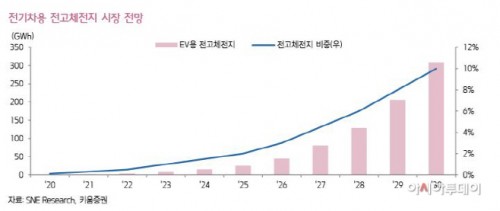 |
By AsiaToday reporters Choi Won-young & Kim Yoon-joo
The establishment of a fund worth 100 billion won (US$90 million) to jointly develop next-generation battery technologies has been halted as the legal dispute between LG Chem and SK Innovation deepens. It’s been less than six months since it was introduced as one of the best examples of collaboration among the country’s big three rechargeable battery makers. As Japan and other countries around the world are anxious to develop battery technologies, there is a growing concern that South Korea may miss a golden opportunity to dominate the market.
According to the battery industry and related government ministries on Sunday, the fund creation for next-generation battery technologies and the joint research and development (R&D) of core technologies among LG Chem, SK Innovation, Samsung SDI, and the government has been virtually suspended. “LG and SK are in dispute over technology leaks, and it is difficult to establish a fund immediately due to the deepening conflicts between the two companies,” a high-ranking government official said. In fact, the three companies are said to have not held a meeting after the legal dispute.
LG Chem recently filed a complaint to the International Trade Commission (ITC) and the Delaware District Court in the United States against SK Innovation over the alleged theft of proprietary information through hiring 76 former key LG Chem employees. “The government has a budget of nearly 10 billion won for the new growth engine, which is enough to allocate a fund for the battery project. It is a matter of negotiations between the three companies,” a government official said. “It’s uncertain whether the project will be resumed or not since the two of them have stopped cooperation. The discussion on funding will resume only when the dispute is settled,” the official added.
The government and the three battery makers signed an MOU last November on the establishment of a 100 billion won next-generation battery fund by the first quarter of this year and joint R&D activities to develop core technologies. It was aimed to develop technologies on all solid-state batteries, lithium metal batteries and lithium sulfur batteries. Once the fund was created, they planned to foster promising small and medium-sized companies to build a next-generation battery industry ecosystem. “The battery market has a structure where a battery maker cannot be competitive if one of its core battery parts lags behind. This is why the three companies teamed up to foster parts specialized companies,” a source in the battery industry said.
The problem is that South Korea may lose its second biggest market following the semiconductor market with the collapse of joint R&D activities. Last year, Japan has already started a $90 million research project on solid-state batteries for electric cars through New Energy and Industrial Technology Development Organization (NEDO). The research is conducted by 4 carmakers, 5 battery companies, 14 material manufacturers as well as 15 universities and research institutes. Once the core technology development is completed in 2022 as planned, the project can triple the energy density while lowering the battery pack cost and charge time by a third.
#LG Chem #SK Innovation #legal feud #next-generation battery #Samsung SDI
Copyright by Asiatoday
Most Read
-
1
-
2
-
3
-
4
-
5
-
6
-
7





















